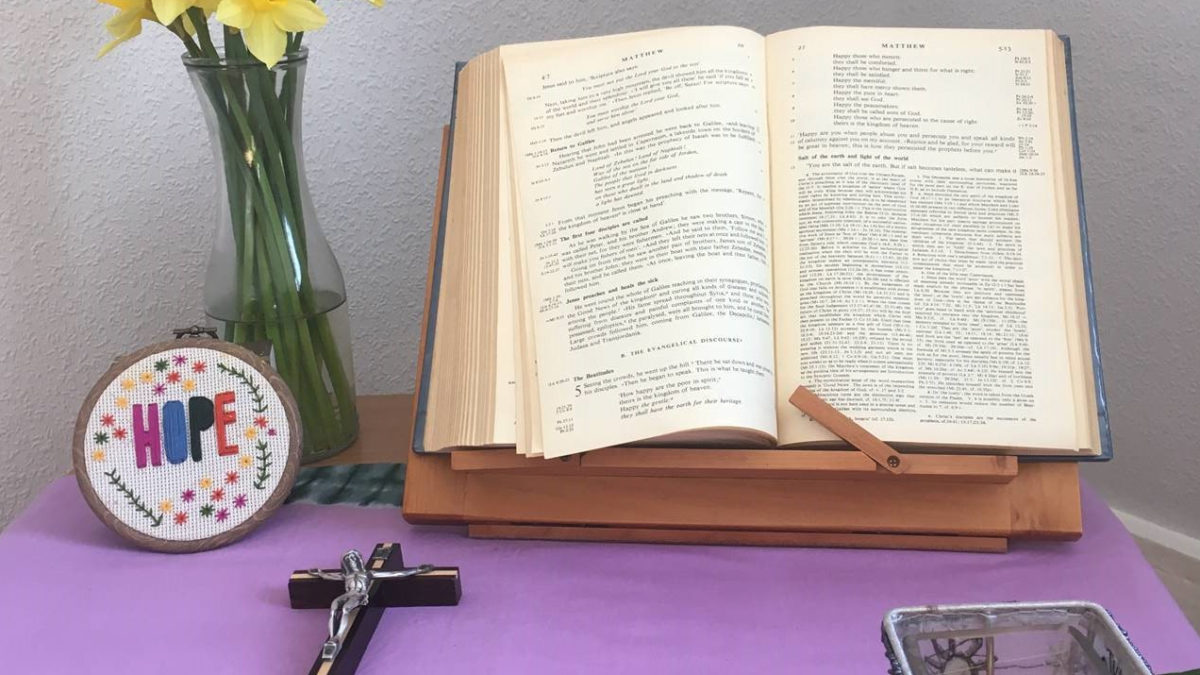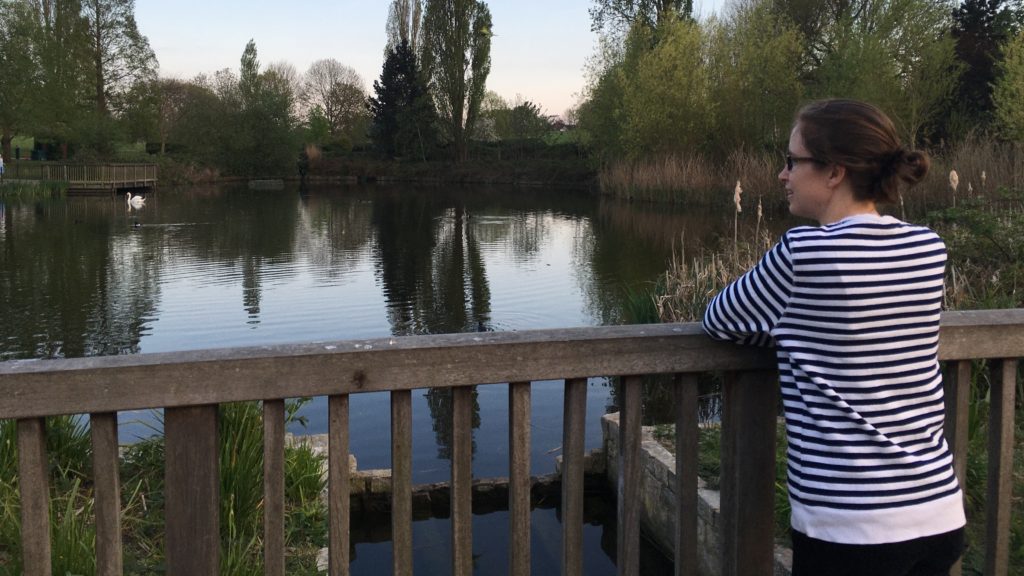7 tips for taking a silent retreat at home

How are you spending your booked annual leave this spring or summer? Coronavirus (Covid-19) is impacting everyone’s plans – work has been postponed, schools closed, flights cancelled, and everyone is advised to stay at home. Rather than cancelling her annual leave, Barbara Forbes spent a week in silent retreat.
Working in CAFOD’s emergency response team, I am in regular communication with our local experts in Lebanon who are responding to coronavirus there. I have been hearing first hand how this pandemic is causing turmoil across the world, not just in the UK.
Find out more about CAFOD’s work overseas supporting the most vulnerable affected by coronavirus
But with so many changes and new pressures on our lives, now more than ever it is important to make time for spiritual recuperation.
With time already booked off for the end of March, and wanting to follow government advice to not travel, rather than cancel my annual leave I decided to spend my week in silent retreat at my home in south London.
I know this won’t be a possibility for everyone (especially if you have young children to look after) but hopefully everyone can find some time in their day or week for some additional reflection and prayer at this time.
Here’s what helped me make the most of my ad-hoc retreat centre.
1. Find a retreat director
This individual, trained in deep listening and asking apt questions, helps the person on retreat to recognise where God is in his or her life. I met with my retreat director, from the Jesuits in Britain, for a video call each day. We discussed what I had been praying and she suggested a plan for the retreat, such as scripture passages to take to prayer.
Learn more about doing a silent retreat at home with the Jesuits in Britain
2. Set boundaries
I decided to start my silence on Sunday afternoon and end the following Saturday morning. On previous retreats I had relished the opportunity to turn off my phone and computer, but this time I checked my email and WhatsApp 1-2 times per day (as I didn’t want anyone to worry about me) and made a few ‘life admin’ calls.
Most importantly, I set a strict no-news boundary and am so grateful I stuck to this – it significantly reduced distractions and gave me more space for thinking.
3. Tell people
I live in community with two others and they were supportive (if occasionally forgetful) of my plan to spend the week in silence. I also told close family members as I didn’t want them to worry or feel I was ignoring their calls.
4. Limit domestic chores
Batch cooking reduced the time I spent in the kitchen and gave me more space for prayer. I went to the supermarket once (to take advantage of quieter midweek shopping!). However, I intentionally did not do any laundry, gardening or hoovering (despite how tempting it could be).
5. Find nature

Long walks in the countryside have been a favourite pastime during previous retreats. It’s different being in London, but it still brought me joy to visit the ducks in a local park.
6. Light candles
During periods of prayer, live stream mass and evening reflections on the day, lighting a candle helped centre my prayer. By the end of the week I had multiple candles around the house – in front of the TV, on our house prayer table, and in my room. I started carrying around a lighter so I was always ready!
7. Be easy on yourself
I initially hoped to spend the week completely disconnected and in silence. Yet, I still averaged an hour each day of screen time on my phone – looking up a recipe, finding the text of a poem and checking messages all add up.
By the end of the week I really did feel rejuvenated and clearer on plans for the next phase of my life.
Whether you have been planning to do a silent retreat or are now just thinking about how to spend annual leave at home, I highly recommend using the time to reflect, pray and disconnect from some of the daily distractions we all face.